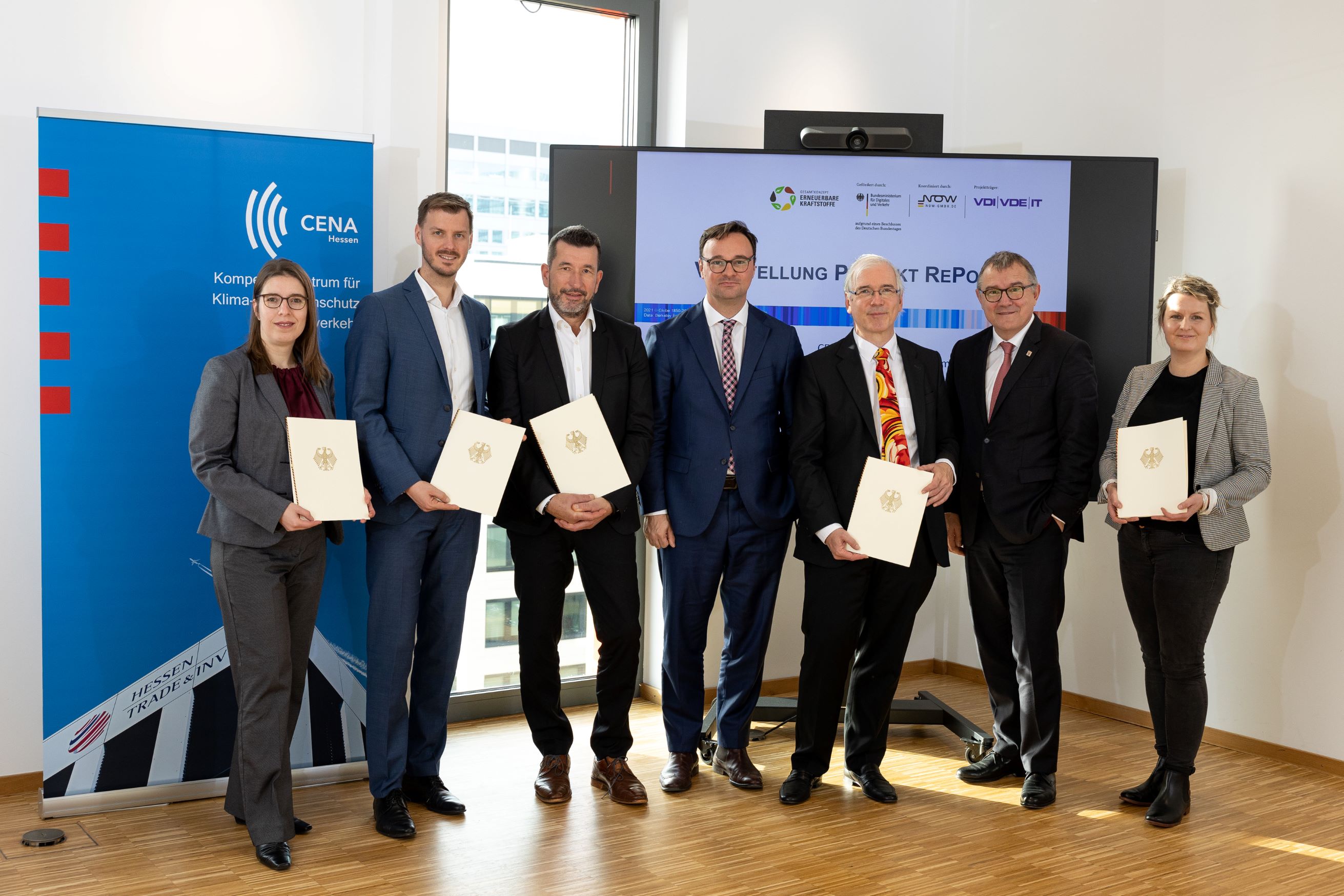Real-Time Power Supply for eFuels (RePoSe)
The Real-Time Power Supply for eFuels (RePoSe) project was launched on November 15, 2022. Under the coordination of CENA (Centre of Competence for Climate, Environment and Noise Protection in Aviation), the project partners are developing possible solutions for the sustainable production of power to liquid.

In addition to the Fraunhofer IWKS, the Leistungszentrum-Wasserstoff Hessen and the Fraunhofer LBF, Ineratec GmbH and the Provadis School of International Management & Technology are also involved in the project.
According to scientific and political consensus, the production of power-to-liquid (PtL) only makes ecological sense if renewable electricity is used. The challenge with so-called "green" electricity, however, is that in Germany the energy produced in this way is not continuously available, as it is mainly generated from wind power and photovoltaic plants. There is a need for further expansion here.
The production of PtL must therefore be organized in such a way that it can take place under the conditions of a variable power supply. So far, almost all research in this field has been conducted under the assumption of a continuous power supply.
The RePoSe project is dedicated to investigate the operation of a power-to-liquid plant under variable power availability and supply and to verify the theoretical concept by means of the practical operation of such a plant.
Main aspects to be investigated
- Optimization of the size of the hydrogen buffer storage
- Effects of different electricity profiles
- Use of short-term electricity forecasts for the control of the overall plant
- Interaction of buffer storage and partially variable production
Goals of the practical operation
- Determination of reliable data for operation with variable power supply
- Development of control algorithms
- Testing of the partially variable operation of the synthesis
- Investigate the effects of variable operation on material wear
- Investigation of the effects of variable operation on life cycle analysis
As part of the project, Fraunhofer IWKS will investigate the system components replaced at specified intervals and their wear, as well as any fatigue phenomena that may occur (such as cracks, surface damage) metallographically, structurally, and microstructurally and morphologically. This provides the opportunity to carry out targeted optimizations on the materials used and to investigate the effects from operation in combination with the effects of hydrogen.
Duration: 01.10.2022 until 30.06.2026
